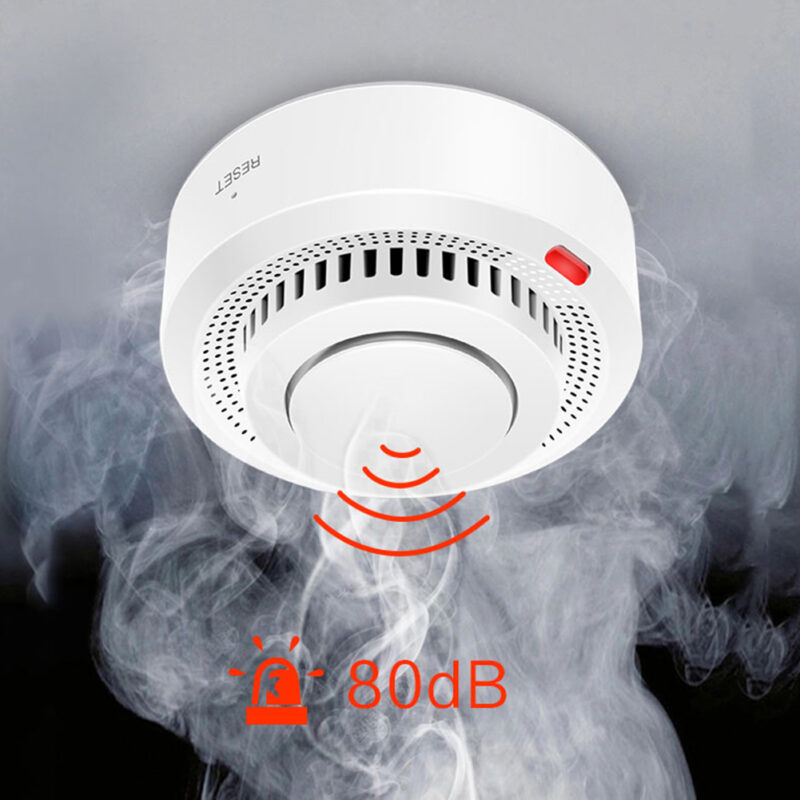Smoke detectors are essential safety devices that can save lives in the event of a fire. However, simply installing smoke detectors in your home is not enough. Regular testing and maintenance are crucial to ensure that these devices function properly when needed most. This article explores why testing your smoke detectors is important, how often you should test them, and the steps to ensure they are working effectively.
Why Test Your Smoke Detectors?
Early Detection Saves Lives
Smoke detectors are designed to alert you to the presence of smoke or fire in your home, providing early warning so you can evacuate safely and promptly. Regular testing ensures that the detectors will sound the alarm when smoke is detected, giving you and your family valuable time to escape before a fire spreads.
Detecting Malfunctions
Like any electronic device, smoke detectors can malfunction over time due to dead batteries, dust accumulation, or age. Testing allows you to identify and address any issues promptly, ensuring that your detectors remain reliable and operational.
How Often Should You Test Your Smoke Detectors?
Monthly Testing
It is recommended to test your smoke detectors at least once a month. Regular testing helps ensure that the batteries are functioning, the alarm is loud enough to be heard throughout the home, and the sensors are responsive to smoke.
Seasonal Checks
In addition to monthly testing, conduct more thorough checks each season. This includes cleaning the detectors to remove dust and debris that can affect their performance. Dust can interfere with the sensors, leading to false alarms or delayed responses during an actual emergency.
Steps to Test Your Smoke Detectors
1. Notify Household Members
Before testing, inform everyone in your household that you will be conducting a smoke detector test. This prevents unnecessary alarm and ensures that everyone is prepared for the sound.
2. Test Each Detector
Press and hold the test button on each smoke detector for a few seconds. The alarm should sound loudly and clearly, indicating that the detector is functioning correctly. If the alarm sound is weak or doesn’t sound at all, replace the batteries immediately and re-test.
3. Check the Battery
If your smoke detectors have removable batteries (not sealed units), replace the batteries annually or as needed. A common recommendation is to change batteries when you adjust your clocks for daylight saving time, typically in spring and fall.
4. Clean the Detectors
Use a vacuum cleaner with a soft brush attachment to gently clean the smoke detector vents and openings. Remove any dust, cobwebs, or debris that may obstruct the sensors. This should be done carefully to avoid damaging the detectors.
5. Test the Alarm Sound
Ensure that the alarm sound is loud enough to be heard in all areas of your home, including bedrooms and other sleeping areas. If necessary, consider installing additional smoke detectors to improve coverage.
6. Record Testing Dates
Keep a record of when you tested each smoke detector and when batteries were last replaced. This helps you track maintenance and ensures that testing is performed regularly.
Additional Tips for Smoke Detector Maintenance
Install Smoke Detectors Properly
Place smoke detectors on every level of your home, including basements and near sleeping areas. Install them on the ceiling or high on walls, as smoke rises and can be detected more quickly from higher positions.
Replace Outdated Detectors
Smoke detectors typically have a lifespan of 8-10 years. Replace older models with new ones to ensure they meet current safety standards and have reliable performance.
Test After Home Renovations
If you’ve recently renovated your home, test your smoke detectors again. Dust and debris from construction activities can affect the detectors’ sensitivity and performance.
Conclusion
Testing your smoke detectors regularly is a simple yet crucial step in maintaining home safety. By ensuring that your smoke detectors are functional, you protect yourself, your family, and your property from the devastating effects of fire. Make it a habit to test your smoke detectors monthly, replace batteries as needed, clean detectors regularly, and keep accurate records of maintenance. By prioritizing smoke detector testing as part of your home maintenance routine, you can rest assured knowing that you have taken proactive measures to safeguard your home and loved ones.
3.5
C

